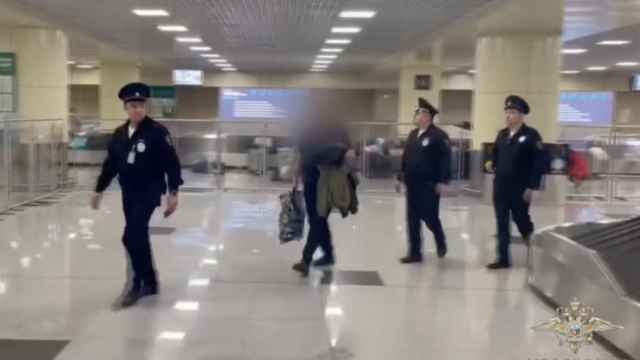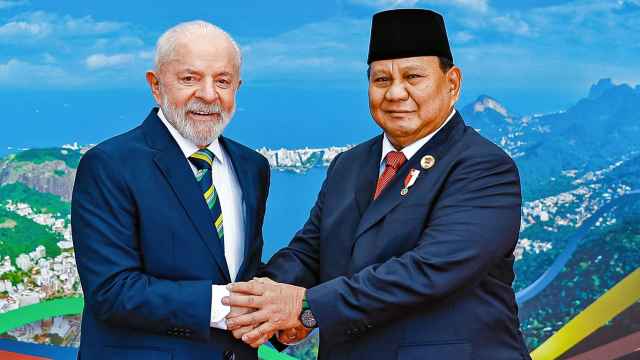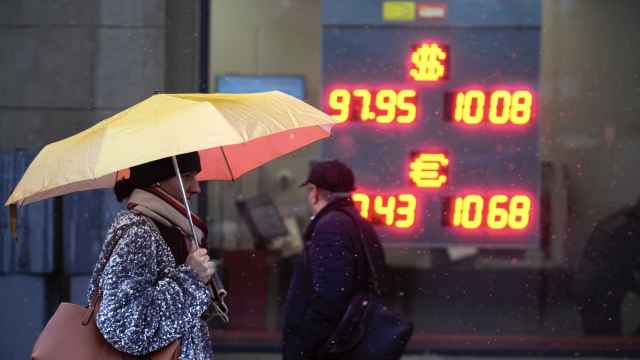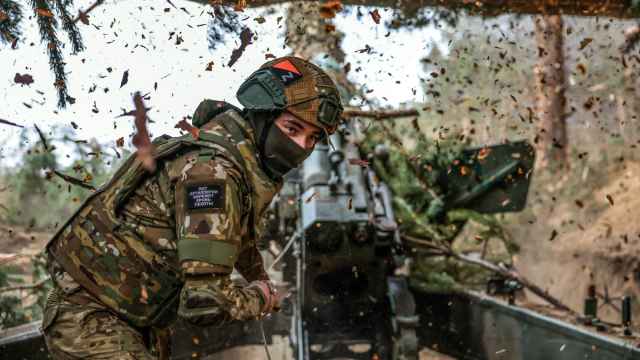Prime Minister Vladimir Putin’s nomination at the United Russia conference on Saturday to run for president in March was an important event, and we can draw important conclusions from it.
First, this marks a dangerous and perhaps irreversible transformation of Putin’s rule from an autocratic corporate style to a highly personalistic one. Putin will go from one of the system’s biggest beneficiaries to its principal and sole beneficiary.
Second, Russia’s economy is entering the second wave of its crisis. If this is accompanied by a catastrophic drop in oil prices — for example, below $40 a barrel — it will be irrelevant who is president and who is prime minister. At this level, even Putin would be helpless to save the economy or prevent serious social unrest.
Third, the most important thing for Putin and his closest advisers is to maintain legal immunity and protect their assets. For this reason, Putin will remain in control of the levers of power as long as possible. The Arab Spring — and, in particular, the arrest and criminal trial of former Egyptian leader Hosni Mubarak — was not lost on Putin. He understands that the same fate could be in store for him in a worst-case scenario.
For Russia, there are only two traditional, time-tested ways to solve pressing problems — reforms conducted by the authorities from above and revolution from below. By rejecting reforms and excluding the opposition from the political process, Putin is dooming Russia to a dangerous path toward social unrest and, perhaps, revolution.
Ten years ago, Putin was interested in the presidency only from a pragmatic, utilitarian point of view. But within a couple of years, Putin and his inner circle became greedier for power, control and wealth.
With age, habits are hard to change. Deeply concerned with his impending retirement, Putin has decided not to change the gerontocratic Soviet tradition.
In October 2012, Putin will turn 60. Despite his excellent health, Putin will become inevitably worse at making strong and objective decisions with every passing year. There is a high probability that many of his future actions will be motivated by irrational short-term considerations and the often random and peculiar fears that come with old age.
The problem for Russia is that there will be few peaceful tools available to get rid of Putin when the need to do so will be greatest.
Mark Feygin, a State Duma deputy from 1993 to 1995, is a political analyst.
A Message from The Moscow Times:
Dear readers,
We are facing unprecedented challenges. Russia's Prosecutor General's Office has designated The Moscow Times as an "undesirable" organization, criminalizing our work and putting our staff at risk of prosecution. This follows our earlier unjust labeling as a "foreign agent."
These actions are direct attempts to silence independent journalism in Russia. The authorities claim our work "discredits the decisions of the Russian leadership." We see things differently: we strive to provide accurate, unbiased reporting on Russia.
We, the journalists of The Moscow Times, refuse to be silenced. But to continue our work, we need your help.
Your support, no matter how small, makes a world of difference. If you can, please support us monthly starting from just $2. It's quick to set up, and every contribution makes a significant impact.
By supporting The Moscow Times, you're defending open, independent journalism in the face of repression. Thank you for standing with us.
Remind me later.





